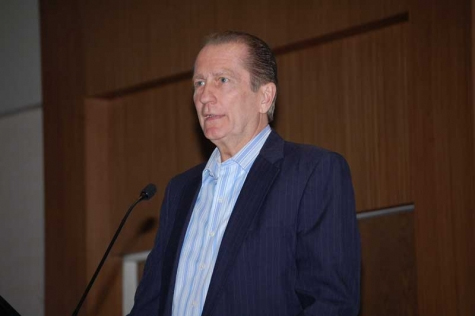Mitchell International is the latest company to publicly state that it doesn’t share U.S. shop estimate data with CARFAX.
“Mitchell has never…shared any data with CARFAX, and we have no plans to and never will,” Jack Rozint, a senior vice president at Mitchell, said during this summer’s Collision Industry Conference (CIC), the first time the conference has been held as a virtual meeting. “Anything on a U.S. claim or repair that showed up on CARFAX, I can assure you, did not and will not come from Mitchell.”
For a number of years, shops have sporadically reported incidents of data from estimates or parts orders relative to a particular vehicle seemingly resulting in an entry on CARFAX or another history report for that vehicle. It’s a topic that’s been raised at CIC multiple times.
CCC Information Services and Entegral, the Enterprise-owned software platform, last fall issued statements saying they do not share information with CARFAX. The CIC “Data Access, Privacy and Security Committee” says it has invited Audatex to make a similar presentation on the issue this fall.
But committee member Aaron Schulenburg, executive director of the Society of Collision Repair Specialists (SCRS), said even though a CARFAX representative has been at CIC when the concerns are raised, the company hasn’t “stepped up to the microphone in a public setting and addressed them.”
The CIC committee has not asked CARFAX to address specific incidents, but SCRS has. CARFAX, Schulenburg said, has not provided information to SCRS to help the association “identify where the information is coming from” but rather just says “they protect their sources of information.”
Could insurers be the source providing the information?
“There have been test estimates sent through with no insurance company attached to it, a customer-pay,” committee chairman Dan Risley said of a number of tests he’s seen that have resulted in CARFAX entries. “It was only an estimate, not even a repair. No part [for the vehicle] was even physically ordered. So we have run our head into a wall running through the whole gamut of different tests to identify and isolate potential [sources]. We have not landed on one yet.”
Schulenburg concurred.
“We’ve tried to find exactly how it’s getting there, and every time we think we know, we find out that we’re wrong, that it’s not the right path,” he said. “This is exceptionally concerning. It’s concerning not just for collision repairers or the consumers we serve. It should be concerning for every single company that is doing electronic commerce.”
The CIC committee has worked to address the CARFAX issue in a number of ways. Mitchell’s presentation last week, like CCC’s last fall, laid out steps shops can take to change the EMS or BMS import and export directory file paths, essentially changing where estimate information is stored, perhaps thwarting a data pump’s access to it. Those presentations can be downloaded from the committee’s page on the CIC website.
Risley also urged shops to understand the agreements they have with all those they share data with, seeking out similar assurances to Mitchell’s and CCC’s that no estimate data is being used or shared in ways not intended by the shop.
The committee also has drafted a set of five “golden rules” for those entities accessing and using shop estimate data, calling on such companies to make it clear what data is being collected and used, to pledge to not misuse or allow others receiving the data to misuse it, and to give customers “the choice to determine what data is and isn’t shared.”
The committee welcomes feedback on the draft---also available in the committee’s July presentation on the CIC website---and envisions presenting the rules, once finalized, to all companies using industry data, and to recognize those companies who pledge to abide by them.










John Yoswick